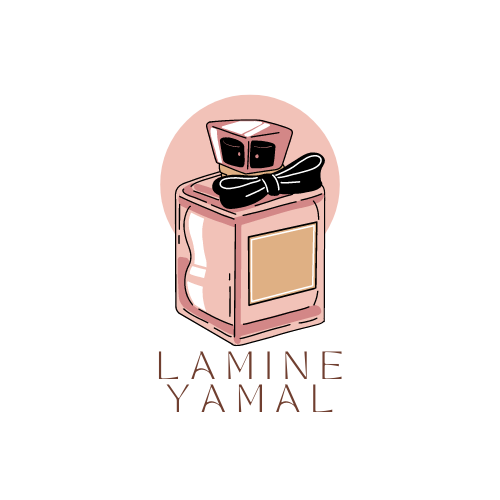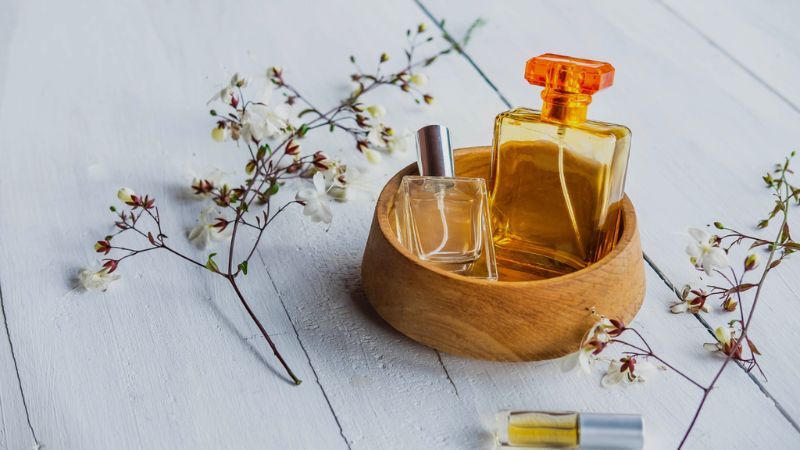Blog
Can Perfume Expire? Everything You Need to Know
Perfume is one of the most luxurious and personal items in anyone’s collection. A well-chosen fragrance can evoke memories, express your personality, and enhance your overall presence. But just like many other personal care products, you may have wondered: “Can perfume expire?”
The answer is yes, perfume can expire, but the way it does so and how to determine if your fragrance is still good can be a bit tricky. In this comprehensive guide, ligce.xyz will explore the shelf life of perfumes, how to tell if your fragrance has expired, the factors that affect its longevity, and how to properly store your perfumes to ensure they last longer.
Understanding Perfume Expiration
Perfume is made up of a blend of essential oils, alcohol, and water. These ingredients work together to create the complex scents we love. Over time, however, these components can change, causing the fragrance to lose its original scent or develop unpleasant odors. Just like food, perfumes have a shelf life, and while they don’t go “bad” in the traditional sense, they do degrade and lose their quality.
Can Perfume Expire?
Yes, perfume can expire. While it doesn’t spoil or grow moldy in the way that food does, the chemical composition of a fragrance can deteriorate over time. The essential oils in perfume are volatile, meaning they can break down, lose their potency, and become less fragrant as time goes on. The alcohol content in the perfume can also evaporate, affecting its overall scent profile.
Perfumes typically have a shelf life of about 3 to 5 years, though some fragrances can last even longer, depending on the formulation and how well they are stored. However, there are some factors that can influence how quickly a perfume will lose its quality.
The Factors That Affect Perfume Longevity
Several factors play a role in how long your perfume will last. These include:
Exposure to Light
Light, especially sunlight, is one of the biggest culprits in speeding up the degradation of perfume. UV rays break down the fragrance’s chemical compounds, leading to changes in the scent. This is why perfumes should be kept in a dark place, away from direct sunlight.
Heat
Heat is another factor that can cause perfume to expire faster. When perfume is exposed to heat, it can alter the chemical balance of the ingredients, causing the scent to degrade. For this reason, you should store your perfumes in cool, dry places.
Air
Oxygen exposure can affect the fragrance of perfume. Each time you open the bottle, air gets inside, causing the perfume to oxidize. This can lead to a less vibrant scent or a completely altered fragrance profile over time. The more often a bottle is opened, the quicker it may expire.
Storage Conditions
Proper storage is crucial in preserving the integrity of a perfume. Bottles should be tightly sealed and stored in a place that avoids extreme temperatures, light, and humidity. When stored correctly, a perfume can last for many years without losing its original fragrance.
Perfume Composition
The type of fragrance also plays a role in how long it lasts. Lighter scents, like citrus or floral perfumes, tend to have a shorter shelf life than heavier, more concentrated perfumes, like oriental or woody fragrances. This is because citrus oils break down faster than the oils in other fragrance families.
How to Tell if Your Perfume Has Expired
It’s not always easy to tell if your perfume has expired, especially if it still looks and smells good. Here are some signs that indicate your fragrance may have gone bad:
Change in Color
If you notice a significant change in the color of your perfume, this is a clear sign that the fragrance has started to degrade. Many perfumes are clear when they’re first purchased, but exposure to light and air can turn them yellow, amber, or even brown over time. A darker color usually indicates oxidation, which means the perfume is no longer in its prime.
Off-Putting Odor
If your perfume smells off, it’s likely expired. The scent may be sour, musty, or overly alcoholic. This happens when the essential oils in the perfume start to break down. Some perfumes may even develop a rancid or “sharp” smell that is unpleasant and noticeably different from the original fragrance.
Change in Fragrance Profile
An expired perfume may smell completely different from how it did when you first purchased it. The top notes (the first scents you smell) may disappear, leaving behind only the base notes, or vice versa. If your perfume seems to lack its original complexity or has lost its freshness, it may be time to let it go.
Separation of Ingredients
Perfume is a mixture of oils, alcohol, and water. Over time, the components may separate, leading to a noticeable layer or particles floating in the bottle. This is another sign that the perfume is no longer viable.
How Long Do Different Types of Perfume Last?
Not all perfumes are created equal, and their shelf life can vary based on the composition and ingredients. Here’s a breakdown of how long you can expect different types of perfumes to last:
Eau de Parfum (EDP)
Eau de Parfum has a higher concentration of fragrance oils (usually around 15-20%) and tends to last longer than other types of perfume. When stored properly, an Eau de Parfum can last anywhere from 4 to 5 years.
Eau de Toilette (EDT)
Eau de Toilette has a lower concentration of fragrance oils (usually around 5-15%) and tends to last for a shorter period of time. An Eau de Toilette is typically good for 3 to 4 years when stored properly.
Eau de Cologne (EDC)
Eau de Cologne has the lowest concentration of fragrance oils (around 2-5%) and is the least long-lasting. You can expect Eau de Cologne to last around 2 to 3 years, depending on storage conditions.
Perfume Oils
Perfume oils, which are highly concentrated, typically last the longest. These oils have little to no alcohol content and can last up to 5 years or more when stored in the right conditions.
How to Properly Store Perfume to Extend Its Shelf Life
The key to ensuring that your perfume lasts as long as possible is proper storage. Here are some tips to help you store your fragrance correctly:
Keep It in a Cool, Dark Place
The best place to store your perfume is in a cool, dark area away from direct sunlight and temperature fluctuations. A drawer, cupboard, or even a closet is ideal. Avoid storing it in the bathroom, where heat and humidity can affect the fragrance.
Seal the Bottle Tightly
After using your perfume, always make sure the cap is tightly sealed. This prevents air from entering the bottle and accelerating oxidation.
Avoid Storing Near Heat Sources
Avoid placing your perfume near radiators, heaters, or windows that receive direct sunlight. Heat accelerates the breakdown of the fragrance oils and can cause the perfume to degrade faster.
Store in Original Packaging
Many perfumes come in beautiful boxes. While these may seem like an extra expense, they can actually help protect your fragrance from light exposure. Keeping your perfume in its original box can prolong its shelf life.
Don’t Shake the Bottle
Shaking the bottle can introduce air into the perfume, which can cause oxidation. If you want to preserve your fragrance, keep it as still as possible.
What to Do with Expired Perfume
So, what do you do with expired perfume? If your perfume is truly past its prime, it’s time to say goodbye. But don’t worry, there are ways to repurpose old perfume:
- Use It as a Room Spray: If the fragrance has changed but is still pleasant, you can repurpose it as a room or linen spray.
- Use It as a Disinfectant: Some people use old perfume to clean surfaces, as the alcohol content can act as a disinfectant.
- Repurpose the Bottle: If you love the bottle, consider cleaning it out and repurposing it for a new scent or decoration.
Conclusion: Can Perfume Expire?
Yes, perfume can expire, but it typically doesn’t “go bad” in the same way that food does. Instead, it loses its fragrance over time as the oils break down and the alcohol evaporates. The shelf life of a perfume depends on its composition, how it’s stored, and how often it’s exposed to air, heat, and light.
To extend the life of your perfume, store it in a cool, dark place, away from heat and humidity. And if you find that your fragrance has expired, you can either repurpose it or dispose of it responsibly. Understanding the science behind perfume expiration and how to take care of your fragrance will help you make the most of your collection and ensure that your signature scent stays fresh for as long as possible.

